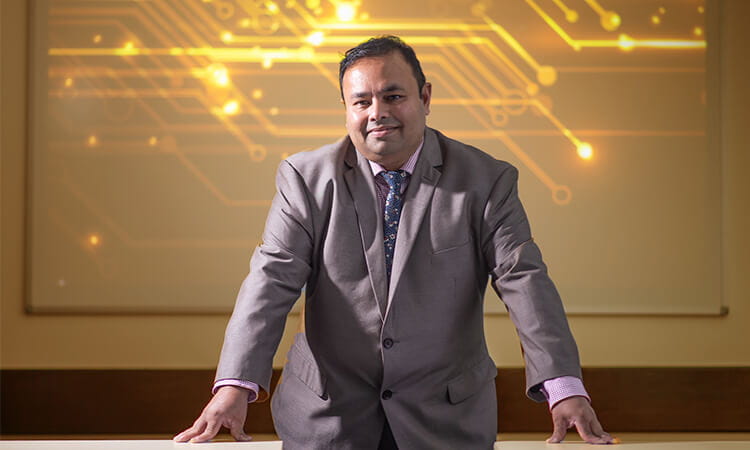Making waves: AI researchers answer the call to help develop intelligent radio system
Could artificial intelligence transform the battlefield?
University of Southern Queensland (USQ) researchers have been called on to develop highly advanced artificial intelligence for a revolutionary radio system that will transform the way soldiers communicate on the battlefield.
The University has partnered with Australian Department of Defence to build an intelligent tactical communication system that understands hostile operating environments and autonomously generates algorithms to enable secure, uninterrupted communications for defence applications.
Chief Defence Scientist Fellow Dr Ismail Shakeel, an Adjunct Professor at USQ, is spearheading the ambitious project in collaboration with USQ professors Ravinesh Deo and Jeffrey Soar.
Professor Deo, a leading researcher in AI and machine learning, said the project was an exciting opportunity for his team to apply its growing AI expertise in the communications area.
“This research is at the cutting-edge of defence capabilities and we’re very excited to be able to develop industry-relevant research in an emerging field of AI-driven communication systems,” he said.
“This project will allow us to demonstrate our team’s research in AI for real benefits to the Australian defence community and provide us with the opportunity to apply our research to solve real-world problems.”
Professor Deo said his team was tasked with developing AI algorithms for the AI-enabled communication system.
“We believe the application of AI in communication systems would make the system more resilient against jamming threats and would enable these systems to operate more effectively in environments where traditional systems fail,” he said.
“Developing AI algorithms for real-time applications comes with many challenges. For example, the algorithms would need to learn and adapt to the fast-changing operating environment very quickly.
“These AI algorithms would not only require processing real-time data with ultra-low latency, but the algorithms have to be explainable, privacy-preserving, robust against manipulation and scalable on hardware.”
The USQ-Defence partnership is supported by the Defence Science Partnerships (DSP 2.0) program, which has provided funding for a three-year doctoral scholarship to USQ student Chris Davey.
It follows an initial scoping of the project through an Australian Postgraduate Research industry internship conducted by USQ doctoral researcher Ekta Sharma.
